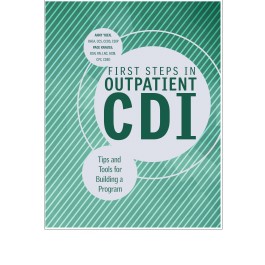Book excerpt: Focusing outpatient CDI efforts in ambulatory surgery

Tips and Tools for Building a Program
By Anny Yuen, RHIA, CCS, CCDS, CDIP, and Page Knauss, BSN, RN, LNC, ACM, CPC, CDEO
Ambulatory surgery and pre-admission testing include pre-scheduled patient visits. Typically, a patient will have a physician order at the time of pre-admission testing, requesting lab work or X-rays. On the day of surgery, the surgeon should already have documented a history and physical pertaining to the patient’s condition as well as the need for surgery. Also on the day of surgery, an anesthesiologist documents an assessment of the patient. The surgeon then completes an operative note following the completion of the surgery. The operative note may (or may not) include a definitive diagnosis if the surgeon is waiting for a pathology report.
CDI specialists in this setting may consider reviewing the surgeon’s history and physical to ensure that medical necessity for the outpatient procedure(s) is clearly documented and meets relevant National Coverage Determination (NCD) and Local Coverage Determination (LCD) requirements.
CDI specialists can also assist with initiatives related to bundled payments. Medicare has four Bundled Payments for Care Improvement (BPCI) models, each linked to payments for the services provided to a patient during an episode of care. These models aim to ensure that healthcare organizations accept both financial and performance accountability. Bundled payments include some outpatient procedures, such as back and neck, hip and femur, and cardiac procedures. CDI specialists can ensure that all documentation is complete and specific across the continuum of care post-surgery.
Editor’s note: This article is an excerpt from the book First Steps in Outpatient CDI: Tips and Tools for Building a Program.
